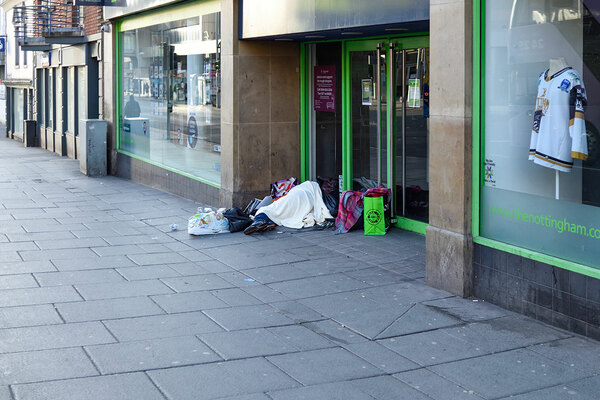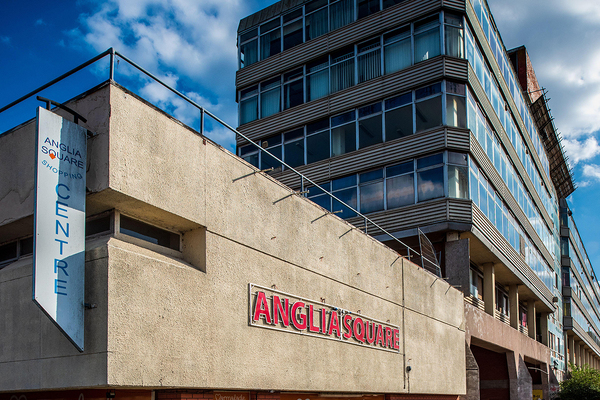How can local authorities make sure rough sleepers don’t return to the streets?
Now that the government’s ‘Everyone In’ initiative has ended, local authorities are looking for solutions to help end homelessness. Inside Housing hosted a webinar, sponsored by Global Guardians, to discuss

In association with:

The COVID-19 pandemic served as a catalyst for the government to house rough sleepers. At the end of March, the Ministry of Housing, Communities and Local Government wrote to all councils in England telling them to find emergency accommodation for rough sleepers within 48 hours. England has an estimated 4,266 rough sleepers – as well as thousands more staying in temporary housing or sofa-surfing.
Before the lockdown in March, the national goal was to end rough sleeping by 2025. Now that the government’s emergency scheme has finished and it is no longer possible to accommodate people in hotels or hostels, local authorities are looking for innovative housing alternatives.
Inside Housing’s webinar, sponsored by Global Guardians, invites social landlords to consider how the lessons learned during lockdown can continue to reduce homelessness over the long term and what package of support needs to be offered to ensure people will not be forced to return to the streets.
Inside Housing and Global Guardians webinar: the speakers
Dominic Williamson, executive director of strategy and policy, St Mungo’s
Mr Williamson joined St Mungo’s for his second time in 2015 and is responsible for strategic planning, policy and campaigns, research, information systems, client involvement, quality, diversity and safeguarding.
St Mungo’s is a leading homelessness charity working with more than 30,000 people each year across the South of England.
Mr Williamson has three decades’ experience in the homelessness sector across a wide range of frontline service and policy positions including roles at Shelter, Homeless Link, Providence Row Housing Association and Revolving Doors Agency.
Joanne Drew, director of housing and regeneration, Enfield Borough Council
Ms Drew’s role is to join up the strategies for housing, homelessness and regeneration across the council.
This includes working with residents and the voluntary sector; tackling the housing crisis, poverty and social justice issues through accelerating the delivery of new homes and regenerated places; improving the quality of council housing; and working to eradicate homelessness and the use of temporary accommodation through a shift in focus towards prevention and early intervention. Enfield is the second-largest provider of temporary housing in England.
Ms Drew also works to deliver great in-house services and is shaping a vision and model for place-keeping across the borough and supporting a joined-up effort to create a better future for the residents of Angel Edmonton.
Brighid Carey, consultancy and projects manager, Action on Empty Homes
Ms Carey joined Action on Empty Homes in 2016 to deliver a study focused on bringing empty homes into use through community-based approaches and in the context of wider economic regeneration.
Ms Carey is now developing a ‘community action on empty homes toolkit’ as a resource for local authorities and community groups.
Most recently a senior manager at Shropshire Council, Ms Carey has a broad range of experience in many aspects of housing and strategic development. She is committed to supporting community-led solutions, community enterprise and self-help initiatives.
Stuart Woolgar, chief executive, Global Guardians
Mr Woolgar works to develop and build the property guardianship company to offer security advice to clients and to coach team members.
Mr Woolgar has more than 20 years’ experience in the security and property industry and oversees research and development of new products and services.
Julian Higson, director of housing and landlord services, Bristol City Council
Mr Higson joined Bristol City Council in 2018. His responsibilities include housing options, homelessness reduction and rough sleeping.
He has worked in the housing sector for 30 years (mostly in London) in roles with councils, housing associations and the private sector.
Mr Higson is a powerful advocate for effective partnership working, and he is proud that a previous domestic violence joint initiative won the Andy Ludlow London Homelessness Award. The authority is presently working on 1,200 ‘move-on’ homes for those coming in off the streets.












